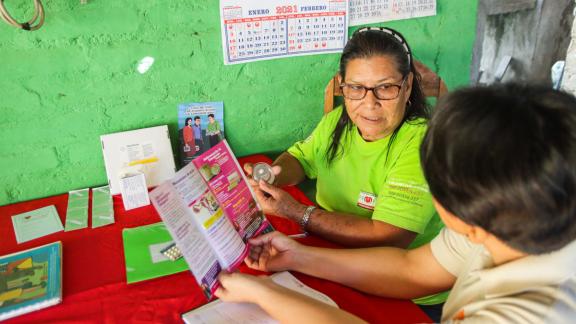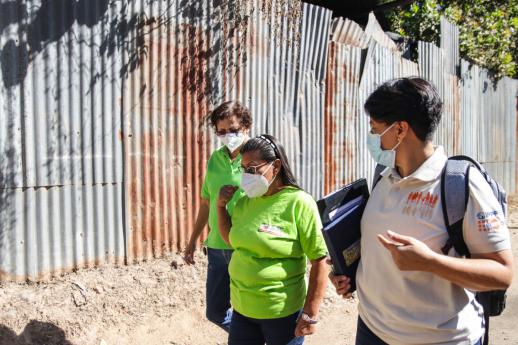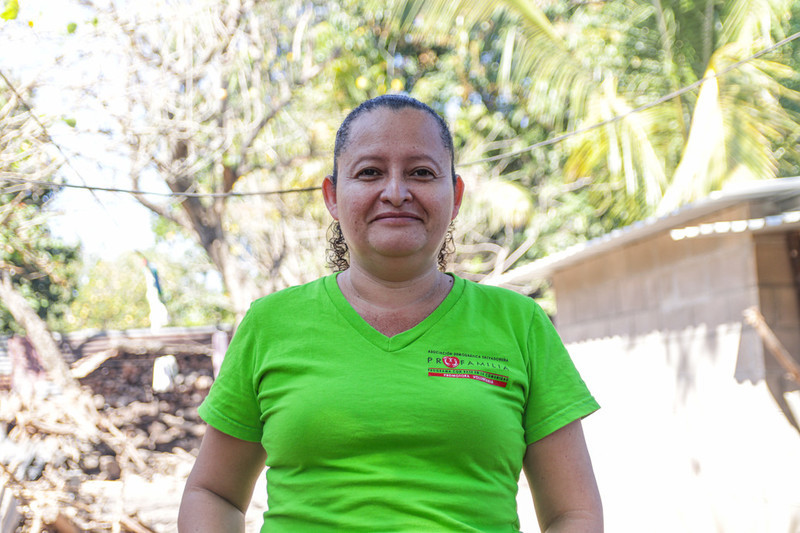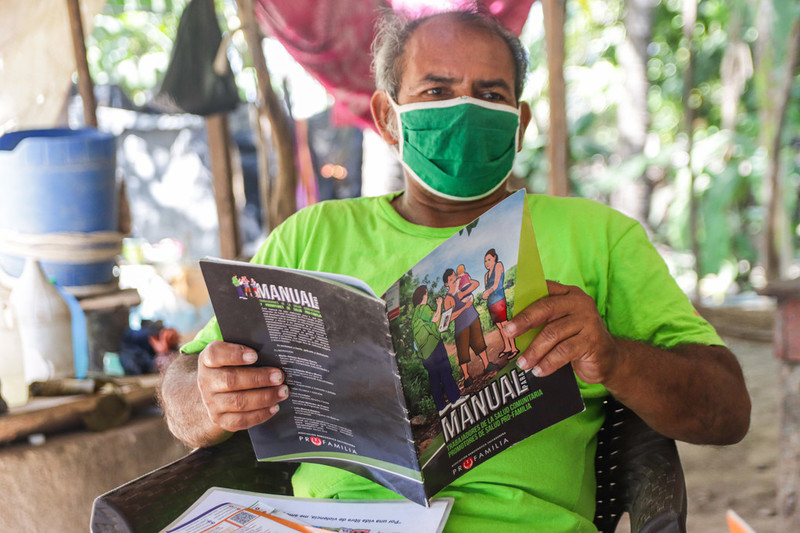Respect and comfort
Blanca is often recommended by her clients. María Ofelia, or Felita, as she likes to be called, comments that "a friend from the community recommended that I visit the Blanqui. I already had two children, a four-year-old and an 11-year-old. I still remember with deep sadness the moment I looked for her – it was my last pregnancy, and I lost my daughter. Blanqui received me with affection, respect and comfort. She understood what I was going through, she guided me, and I made the decision to plan until now. I’ve been using the two-month injection for four years."
Felita says that although she can go to the social security check-up, she prefers to go to Blanca because of the confidence she gives her; “She always takes care of me, and the prices are low, I can pay it, because in other places the contraceptive methods are more expensive.”
Tackling challenges with sensitivity
The poverty and patriarchy in these communities present many challenges, including domestic violence, multiple partners, and miscarriage that require a sensitive approach to the provision of healthcare and information. Volunteers like Blanca are supported to deal with these challenges through training provided by the Community-Based Program staff. Volunteers develop skills to use referral systems, coordinate with local institutions, such as the Ministry of Public Health, other NGOs, such as the Feminist Women's Collective, and the Institute for Research, Training and Development of Women (IMU), which provide support for cases of violence or care in cases of miscarriage.
This approach is integral to the provision of healthcare and support in the communities. The team of volunteers help to reduce violence and femicides in order to improve the quality of life for women and families.
"People in the community tell me that they are grateful for the care I give them, and I will continue to change what I can to improve people's lives. I will continue to make home visits, give counselling, because it is a need, women need someone that understands them and helps them. Pro-Familia is part of my life, being a volunteer is something special, I have learned a lot, and the most important thing is that I can help others."











